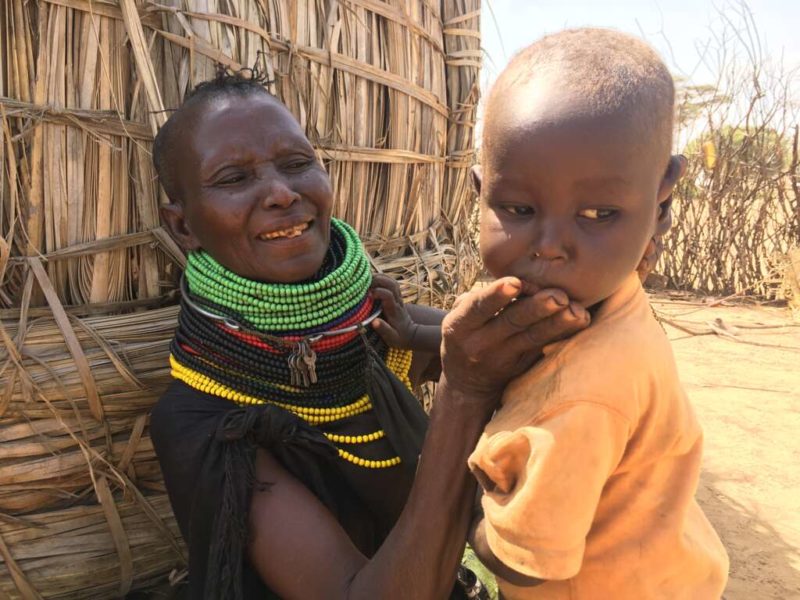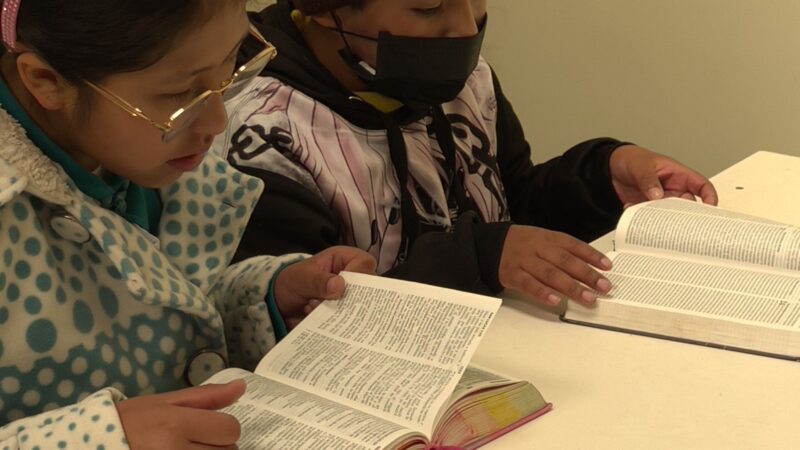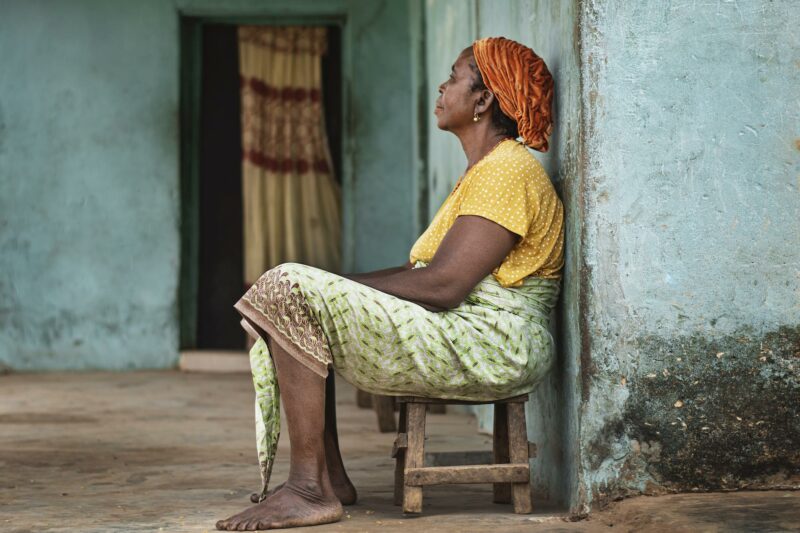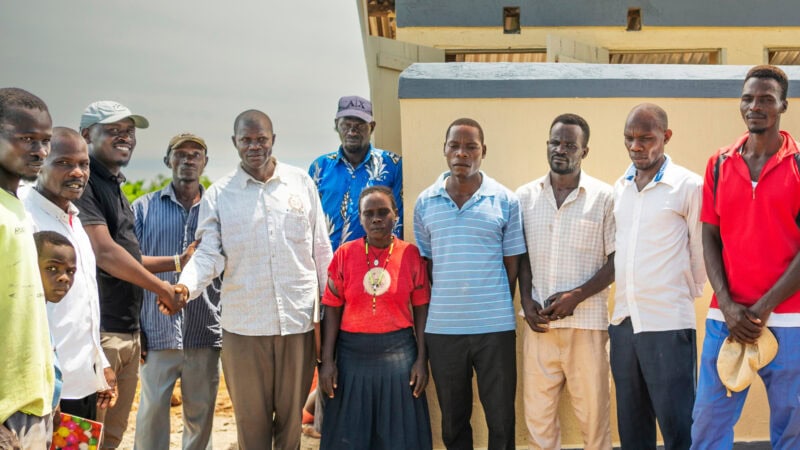We met Margaret in the village of Natoot in Kenya. Margaret is a mother of five, with three daughters and two sons. Despite her age, Margaret is a determined young farmer at the Natoot Farm. The first time I met with her in her farm plot, I couldn’t help but think that age is but a number.
Margaret reminisced, “When we were young women, life was good. We had a lot of goats, sheep, camels, cattle, and donkeys. We had plenty of meat and milk for everyone. The government and non-governmental organizations were here distributing relief food, clothes, and taking our children to school. They came into the village to collect our firewood, mats, and brooms to sell in other parts of Kenya.”
“Life is different today.”
“Finding food has become hard, and money is scarce. The animals that we used to depend on are gone. When the Natoot Farm was first introduced to us, I thought that it was a mistake. Never in my entire life had I considered farming. My second thought was that it would die like all the other government projects. In 2015, a neighboring farm in Napuu survived only one season. Despite our reservations, we began working on the farm. Surprisingly, it was a great experience!”
Margaret paused to give a broad smile and then continued to narrate her experience.
“After being chosen as a farming candidate at the Natoot Farm, I planted melon, the first crop of my life, and it did so well. One-by-one, I counted all the fruits produced in my plots. Altogether, there were three hundred and seventy-two! I was very excited.”
Margaret continued narrating her heart-wrenching experience as tears accumulated in her eyes.
“I can’t forget the rains that poured heavily on April 30, 2020.”
“The floodwater attacked our plants from all directions; it was like a lake. The floods destroyed all of my fruits. The next morning, we couldn’t get to the farm; it was too muddy. When we were able to get back to the farm, all the melons had been plucked from their stems. Sadly, we were now counting our losses rather than profits.”
Like most of the other farmers, torrential rains flooded the fields and prevented Margaret from getting her entire melon harvest to the market. With the five thousand shillings (about $46.50) she made selling the melons harvested before the floods, she bought food for her family and continued working towards the second season.
“The five thousand shillings I earned allowed me to buy enough food to support my family until now. The encouraging thing about the farm is that it gave me fruits, which in return, I sold to buy food. I did not have to line up for relief food from the government or non-governmental agencies. Which is an especially good thing, as I have not seen any trucks bringing relief food here during COVID-19.”
Margaret is now preparing her plots for the second season of planting.
In spite of the destruction caused by the flood, she is determined to continue, despite the challenges.
“This farm is a blessing to our community here in Natoot. We are not the only ones who have been going hungry, but God saw it fit to come to our aid. The farm is His gift to us, and the rain is too.”
Please remember to pray for the farmers at the Natoot Farm. Pray for them as they prepare for the second season. Ask the Lord to bless and protect their crops, and for the harvests to be bountiful. Praise Him for this incredible opportunity that is helping to break the chains of extreme poverty in the Natoot village in northern Kenya.
Learn More About Bright Hope
When Hope for Today Makes Tomorrow Possible
Hope for Tomorrow: Sometimes Poverty Alleviation is Simple
Hope for Eternity: Jesus Cares for the Poor
Bright Hope, a Holistic Ministry Meeting the Needs of the Poor




